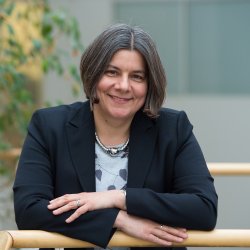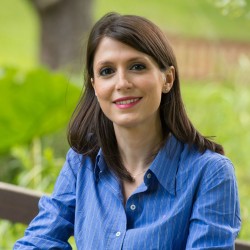Remote medical interpreting is a double-edged sword in healthcare communication
Remote medical interpreting (RMI) may be hindering healthcare communication rather than helping it, according to a new study from the University of Surrey.

As the healthcare sector leaned heavily on technology during the COVID-19 pandemic, interpreters reported mixed experiences that raises serious questions about the effectiveness of remote communication platforms in critical medical settings.
The study, led by Surrey's Dr Wei Zhang alongside Dr Elena Davitti and Professor Sabine Braun, surveyed 47 professional interpreters with experience in remote interpreting across various healthcare contexts.
This research found that while remote interpreting technologies like telephone and video interpreting are widely adopted, they may affect the quality of communication between healthcare providers and patients. Many interpreters expressed concerns about the negative impacts these remote methods have on their performance and the overall patient experience and outcomes.
Key findings highlighted:
- Video interpreting (VI) and telephone interpreting (TI) as remote medical interpreting (RMI) modalities have many shared challenges and limitations, e.g., lack of visual cues in TI and lower efficiency of such cues in VI, compared to in-person interpreting.
- Interpreters rated both VI and TI as negatively impacting effective communication and human interaction, but VI was rated as being more effective than TI.
- The COVD-19 pandemic has exacerbated existing challenges shared by TI and VI in both technical and interactional aspects.
The survey revealed that interpreters often faced technical challenges, including poor sound quality and lack of visual cues, as well as prevalent logistical challenges, such as lack of briefing and the constraints to nonverbal and emotional cues shared in both TI and VI, which all negatively impacted their ability to interpret effectively. Notably, interpreters described TI as especially challenging in complex medical situations involving multiple speakers and/or a high density of nonverbal or emotional communication, such as delivering bad news to patients.
Participants for the study were recruited through professional interpreter associations, language service providers, and healthcare institutions. The survey consisted of five blocks of questions designed to assess interpreters' experiences, perceptions, and the technologies used in both telephone interpreting and video interpreting settings.
The research also found that the shift to remote interpreting during the pandemic resulted in a reliance on less suitable communication methods for certain medical contexts. For example, while interpreters felt comfortable using TI for straightforward interactions, they found VI to be more effective in longer and/or complex healthcare encounters. VI was perceived as an acceptable but not fully equivalent alternative to traditional face-to-face interpreting, particularly in settings where emotional or nonverbal communication is essential. This suggests that the choice of interpreting method should be carefully considered based on the nature of the medical interaction.
As interpreters navigate the challenges of technology, the findings serve as a critical reminder of the inherent value of human interaction in medical settings.
[ENDS]
Note to editors
- Dr Wei Zhang, Dr Elena Davitti, and Professor Sabine Braun are available for interview, please contact mediarelations@surrey.ac.uk to arrange.
- The full paper is available at Perspectives: Studies in Translation Theory and Practice
Related sustainable development goals


Featured Academics
Media Contacts
External Communications and PR team
Phone: +44 (0)1483 684380 / 688914 / 684378
Email: mediarelations@surrey.ac.uk
Out of hours: +44 (0)7773 479911



